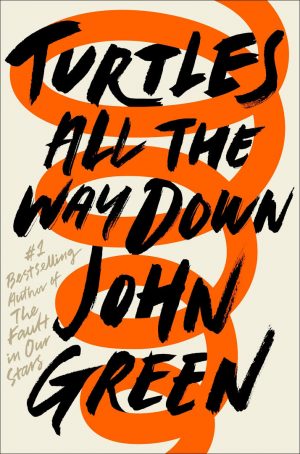New novel gives mental health commentary
John Green’s most recent book tackles living with OCD
October 26, 2017
In “Turtles All The Way Down,” Aza, a sixteen-year-old sufferer of obsessive-compulsive disorder, and her friend Daisy, follow the mystery of Russell Pickett, a billionaire who is running from police on accusations of bribery; at the same time, she begins to develop a relationship with Pickett’s son, Davis, as she continually battles her own mental illness.
So what makes this novel one to read? Ava, primarily, and the way author John Green describes her.
What I love about this novel is that Green tackles perhaps the most misunderstood mental illness: obsessive-compulsive disorder. The way he describes how her mind works, and how it inhibits her, lends words to a situation that many of us cannot understand.
I enjoyed the way that Green brings light to this issue, and explains OCD in a way that readers can grasp more easily. He explains it as a tightening spiral, a never-ending prison that traps you in your own mind.
Further, he pulls open a window into Ava’s mind, and shows how these moves and thoughts grasp her, and force her to fight herself.
Beyond that, I appreciated the plot’s roots in realism. The characters are relatable, even though they are young, and are people we can see in the real world and understand.
Each has their own failings and are not put on a pedestal; in many ways, Green shows where their weaknesses actually lie, and devotes the story to how they learn and build themselves. How they develop their relationships, and how their relationships change them reflects their humanity.
What also makes the story a realistic take on the world is the fact that the mystery of Davis’ father takes a backseat to the people story; instead, the characters and their issues take center stage, and yet, the story still compels you with the same energy as the mystery does.
This causes further interest in how Green uses this subplot – during a large portion of the novel, Pickett’s disappearance causes more issues than it solves, and continually tears at the characters, even at resolution.
Overall, I am thankful for this novel, and I praise John Green for bringing to light and discussing an issue that has troubled the country, and one society still struggles to fully understand. I salute you, Mr. Green, for writing this lovely piece.
Morgan Lester is a freshman architectural studies major from Leavenworth, Kansas. He can be contacted at [email protected].








